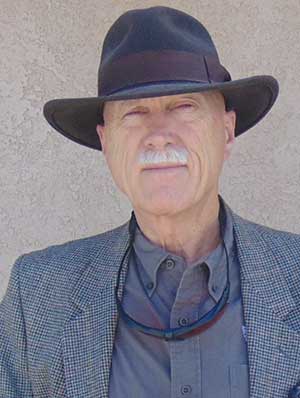By Dean Weingarten


Arizona – -(Ammoland.com)- On the NevadaFirearmsPAC facebook page, Roderic Converse posted the below image of the 1866 comments of Senator Jacob Howard. The New York Times reprinted the comments on the front page, during the Congressional debate. They are an explanation of the Fourteenth Amendment, by one if its primary proponents, at the time of its passage.
From Roderic Converse on Facebook:
Co-sponsor Senator Jacob Howard on May 23, 1866 gave his comments about the proposed 14th Amendment and its purpose. His thoughts made the front page of the New York Times on May 24. The right to keep and bear arms was part of the deal.
Here is my transcription of the relevant parts of the article. While Senator Howard’s comments are well written, erudite and worth reading in their entirety, here is what he says about the second amendment and the power granted to Congress by the fourteenth amendment, which had not yet been ratified, to enforce it. Senator Jacob Howard clearly saw the second amendment as an individual right, and saw nothing controversial about that fact:
“…to these should be added the personal rights guarantied and secured by the first eight amendments of the Constitution; such as the freedom of speech and the press; the right of the people to peaceably to assemble and petition the Government for a redress of grievances, a right appertaining to each and all the people; the right to keep and bear arms;…”

Near the end of his comments, Senator Howard explains why the fourteenth amendment is necessary to give Congress the power to enforce the guarantees of the privileges and immunities of citizens of the United States, including the first eight amendments in the Bill of Rights:
“Now, sir, there is no power given in the Constitution to enforce and to carry out any of these guarantees. They are not powers granted by the Constitution to Congress, and of course do not come within the sweeping clause of the Constitution authorizing Congress to pass all laws necessary and proper for carrying out the foregoing or granted powers, but they stand simply as a bill of rights in the Constitution, without power on the part of Congress to give them full effect; while at the same time the states are not restrained from violating the principles embraced in them except by their own local constitutions, which may be altered from year to year. The great object of this amendment, is therefore, to restrain the power of the States and compel them at all times to respect these great fundamental guarantees. How will it be done under the present amendment? As I have remarked, they are not powers granted to Congress, and therefore it is necessary, if they are to effectuated and enforced, as they assuredly ought to be, that additional power should be given to Congress to that end. This is done by the fifth section of this amendment, which declares that “the Congress shall have power to enforce by appropriate legislation the provisions of this article.” Here is a direct affirmative delegation of power to Congress to carry out all the principles of all these guarantees, a power not found in the Constitution.”

To those who claim that the Congress has no power to pass a bill requiring all States and territories of the United States to enforce the second amendment by requiring them to honor concealed carry permits issued in all other states, the fourteenth amendment was intended to give the Congress exactly such power. Now that the Supreme Court has ruled that the second amendment is an individual right secured by the Constitution, it can hardly be more clear that the second amendment is one of the rights that the Congress has the power to legislate to protect. The Congress itself is prohibited from infringing on the right to keep and bear arms; but it also has the power to prevent the States from doing so.
The Congress’ most well known legislation protecting rights under the fourteenth amendment is the voting rights act of 1965. It may be time for the Congress to protect the right to keep and bear arms as vigorously as it has protected the right to vote.
c2014 by Dean Weingarten: Permission to share is granted when this notice is included. Link to Gun Watch
About Dean Weingarten;
Dean Weingarten has been a peace officer, a military officer, was on the University of Wisconsin Pistol Team for four years, and was first certified to teach firearms safety in 1973. He taught the Arizona concealed carry course for fifteen years until the goal of constitutional carry was attained. He has degrees in meteorology and mining engineering, and recently retired from the Department of Defense after a 30 year career in Army Research, Development, Testing, and Evaluation.

“they stand simply as a bill of rights in the Constitution, without power on the part of Congress to give them full effect”
Baloney! You don’t need to be granted power to make laws that prevent other laws…you just can’t make those laws – that is already implicit in the Bill of Rights. I see this as a blurring of the separation of powers.
The 14th just made everyone a Slave – It didn’t free anyone. It created U.S. citizen’s – Subjects of the Federal Corporation witch fall under a completely different set of “Laws” or corporate rules called Statutes.
A U.S.citizen is a slave.
I think you “Over-Reaching” this one, there’s nothing in the 14th amendment that even comes close to the prescription of “The Right of the people to Keep and Bear Arms”. And even if it did Article IV, Section 2, Clause 1 of the Constitution would “nullify” it.